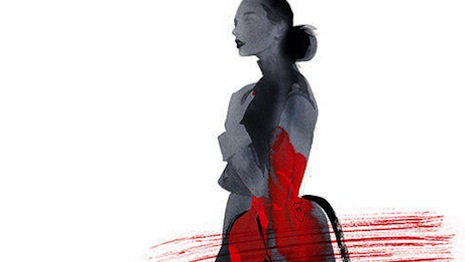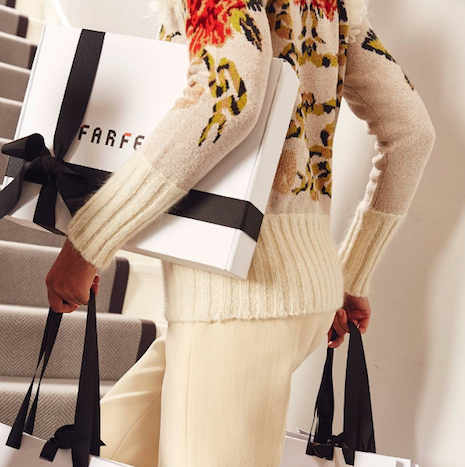Digital luxury retailers are expected to soon face new competition, as luxury conglomerate Moët Hennessy Louis Vuitton is reportedly launching its own multi-brand ecommerce site.
According to a report from the Financial Times, the group will debut a platform in May that will sell both its own brands and labels outside of its stable of houses, which includes Dior and Fendi. With an increasing portion of luxury sales coming from online channels, this venture enables LVMH to capture part of this growth.
“It’s not a secret that the online sales of the fashion and luxury goods are growing faster compared to the overall brick-and-mortar sales,” said Yana Bushmeleva, chief operating officer of Fashionbi, Milan.
“Moreover, today the ecommerce or simply the Web site is the largest flagship store of any brand in terms of the visits numbers and it plays a crucial role in the purchasing behavior of the customer who can start to search for the product online and complete the transaction offline and vice versa – omnichannel marketing.”
Ms. Bushmeleva is not affiliated with LVMH, but agreed to comment as an industry expert. LVMH was reached for comment.
Commerce competitor
LVMH’s ecommerce site will be branded Le Bon Marché, taking its name from the group’s upscale department store in Paris.
In addition to distributing LVMH labels, the online storefront will also carry outside brands. This mirrors the retail strategy seen in the group’s other multi-brand outlets such as beauty seller Sephora and travel retailer DFS, both of which are within LVMH’s selective retailing activities that outperformed the overall group’s revenue rise of 5 percent with 8 percent sales growth in 2016 (see story).
Extending this platform beyond solely LVMH brands makes this newcomer more of a threat to existing ecommerce businesses such as Net-A-Porter, Farfetch and MatchesFashion, all of which retail a number of the LVMH labels.
“For sure the online store by LVMH can represent a threat to the existing players,” Ms. Bushmeleva said. “Besides the wide range of the brands that LVMH owns, the company has a huge database of the clients and some of these clients can ‘overlap’ with the other online players.
“In addition, LVMH doesn’t need to invest a lot in promotion of the new online platform, they can start from the current customers base,” she said. “There can be also an overlap of the brands, currently, Kenzo is present at Net-A-Porter, the questions is if Kenzo will be still present at Net-A-Porter after the launch of the platform, which pricing policy will be applied? Maybe the new multi-brand platform by LVMH will be used as a channel to sell the off-season collections?”
While LVMH’s platform is a new competitor in the ecommerce space, primarily online businesses can position themselves to retain and add customers.
“Net-A-Porter and MatchesFashion face new competition, but this isn’t any different from other sectors where brands compete against retailers that also carry the brand,” said Gustavo Gomez, a retail consultant based in San Diego. “Net-A-Porter and MatchesFashion will need to provide added services (faster shipping, exclusive products, promotions) to distinguish their brand and build brand loyalty.
“Net-A-Porter and MatchesFashion could expand the brands they carry,” he said. “This will also help differentiate their offering.”
As opposed to LVMH’s competitor Kering, which established a partnership with Yoox Net-A-Porter Group to launch direct ecommerce platforms for its umbrella of brands, LVMH has taken a more individualized approach. Each house has been allowed to dictate their own digital strategy, resulting in a range in online presence.
While some were quicker to adopt ecommerce, such as Emilio Pucci and Marc Jacobs, a number of LVMH houses lagged in launching online stores. Fendi just opened an e-shop in 2015, and Céline has announced that it will debut an ecommerce site later this year (see story).
Others are selective in how they retail. Since its launch in 2013, Givenchy’s direct-operated ecommerce has been limited to a Net-A-Porter powered mobile app, and Dior has just begun selling some fashion merchandise online in select markets, with its ready-to-wear joining the existing selection of beauty products.
LVMH’s platform could offer a testing ground for ecommerce latecomers within its group while also leveling the playing field when it comes to digital prowess.
“This venture extends the brand reach,” Mr. Gomez said. “This is what ecommerce is all about – providing customers with access to the brand.
“LVMH gets to control the online branding and positioning in a platform they own instead of allowing third party sellers to be the only online source to purchase,” he said. “Additionally, it provides a direct relationship with the shopper without the retail intermediary – a good branding move.
“Also, I think in some parts of the world, buying directly from LVHM, assures that you are purchasing the real thing and not a counterfeit product.”
As the largest player in luxury, LVMH’s move may also help to further a trend already in motion, putting more pressure on laggards in other companies to enter ecommerce themselves.
“Luxury has been slow to adapt to ecommerce,” Mr. Gomez said. “It’s hard for an industry that has been built around exclusivity to adopt a platform that is inclusive in so many ways. But LVMH, like many other established luxury brands, realize that they must play the ecommerce and the multichannel game.
“New brands are emerging that are cutting into their market share,” he said. “Consumers want online access to luxury goods, and they will find it whether the brands provide it directly or not.
“LVMH, with its extensive portfolio of brands, has decided to use their strength in resources and brands and unite them under this platform. By using Le Bon Marché brand as the cover to the individual brands, it still allows some level of exclusivity because a shopper must go through a gateway of sorts.”
Digital divide
Seven percent of personal luxury goods sales are made via ecommerce today, but online retail will represent 12 percent of the luxury market by 2020, according to projections from the Boston Consulting Group.
About six out of every 10 luxury purchases currently are influenced by digital channels, as social media, a brand’s Web site and mobile feed into buying decisions, whether the transaction is completed online or in-store. While many luxury brands have been avoiding the shift toward digital that many of their mass counterparts have made, BCG warns that the business models of digital laggards will no longer suffice in today’s market (see story).
LVMH has looked to boost its digital capabilities through a key hire and tech initiatives.
In 2015, the group appointed former Apple executive Ian Rogers as its chief digital officer (see story).
For the second year in a row, the company will be taking part in the Viva Technology Show.
During the 2017 edition taking place June 15-17 in Paris, the company will give out the first LVMH Innovation Award. The prize is meant to open doors for startups, allowing the winner to break into the luxury industry through meetings with LVMH houses and other potential collaborators (see story).
“There is no ‘online’ or ‘offline’ customer. The customer is always the same person who decides what and where to shop,” Ms. Bushmeleva said. “So the task of LVMH will be to differentiate products, services or even collections in order to push the same customer to buy more. So the task is how to persuade the same person who can be already a client of the Fendi brick-and-mortar flagship store, who also buy Fendi products at the brand’s official online store to shop the Fendi brand also at the newly launched online store.
“Ideally, LVMH can increase the spending power of the existing customers and grow thanks to the new customers, who do not yet have a habit to shop online.”
from Apparel and accessories – Luxury Daily https://www.luxurydaily.com/what-does-lvmhs-ecommerce-venture-mean-for-luxury-retail/
via Your #1 Source to Finding Luxury & Designer Goods, Handbags & Clothes at or Below Wholesale: Click Here.




No comments:
Post a Comment